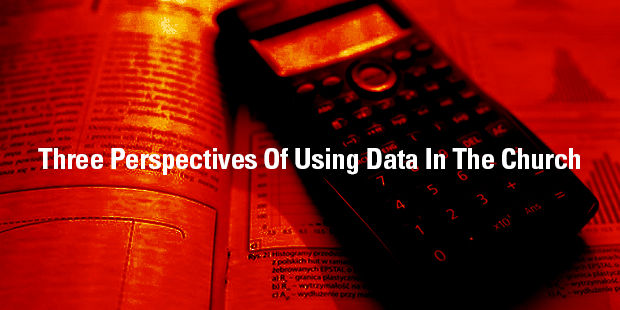
Three Perspectives of Using Data in the Church
Leaders have never been able to access so much data and have never been encouraged so strongly to let the data direct them. In recent years there has been an avalanche of books, articles, and conferences on leveraging big data. Data scientists are hired to bring their expertise to companies and “machine learning” is being utilized in organizations. So what is a leader to do? There are three common approaches leaders take with data and only one of them is healthy and wise:
1. Ignore the data.
Some leaders foolishly ignore data. They choose to “trust their gut” or “go with their instincts.” Some ministry leaders have viewed looking at and learning from data as unspiritual and displaying a lack of faith. It is not unspiritual to look at data and it is unwise not to. While data does not tell the whole story it does tell part of the story. It can help leaders understand the context, the challenges, and the opportunities. Data can help leaders know where to invest more resources and where to pull back.
2. Obsess over the data.
For an unhealthy leader data can be a drug. Unhealthy leaders can live from report to report for their worth and their identity. They can lead reactively, based on the latest spreadsheet, instead of proactively setting a direction. Leaders can easily obsess over the less important data points. And their obsession over those data points can cause them to lead with only those data points in view. It is unwise to ignore data and unhealthy to obsess over it.
3. Learn from data.
Professor and management consultant W. Edwards Deming quipped, “In God we trust, everyone else must bring data.” He captures the reality that leaders do not lack people offering them ideas, perspectives, and opinions on which direction to go and what decisions to make. And data can help. Data can help leaders look at the options objectively. Data can help leaders avoid being persuaded by the best sounding approaches and push toward the actual best approaches. Data can help teams learn and adjust tactics. Data should be a strong voice in the room when leaders make decisions.
Wise leaders avoid the two extremes of ignoring and obsessing over data. Instead they learn from it and view it as a tool they can use as they lead and serve their teams.

Tags: Eric Geiger, data, using data in church












